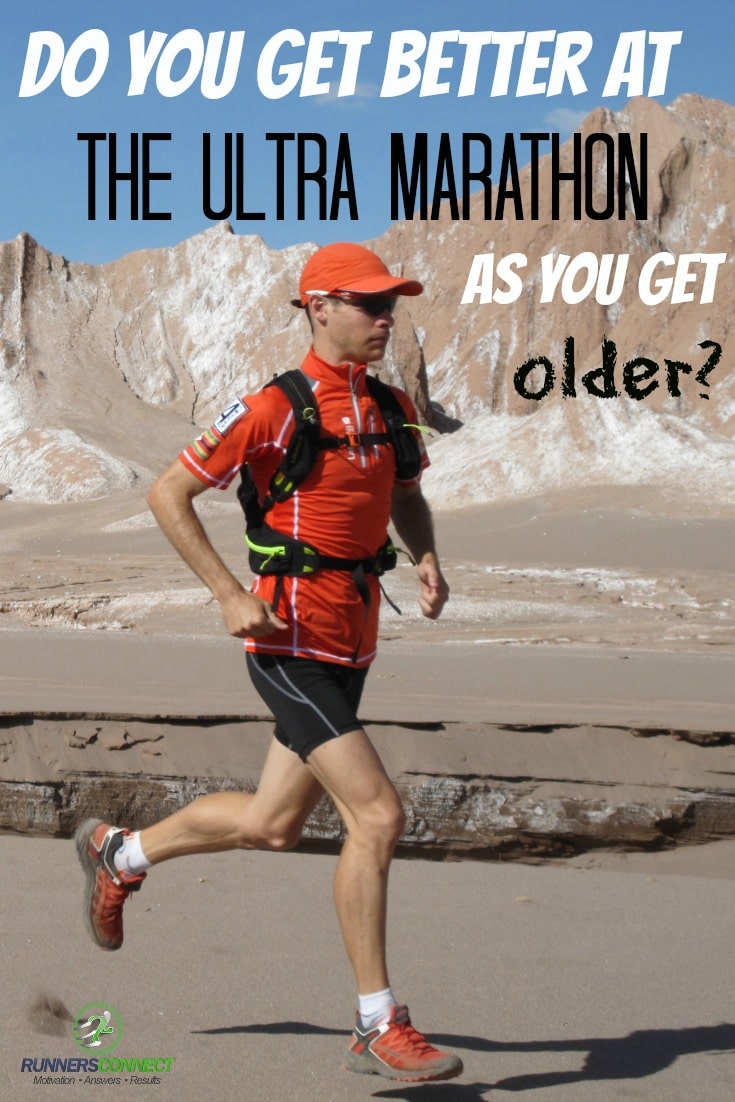 Conquering the marathon is a big accomplishment.
Conquering the marathon is a big accomplishment.
Even though the number of people completing a marathon every year is at an all-time high, a 26-mile race is no easy task. And yet despite that, some runners finish the marathon and find their thirst for a challenge not fully quenched.
So, they decide to take their first steps into the world of ultramarathoning.
In the ultra world, there’s no lack of tests of endurance. You’ll find 100 km, 100 mi, 12-hour, and even 24-hour races all across the country, and they often include brutal trails, high altitude, and steep hills.
The prospect of entering a race that may take you the better part of a day to complete is a daunting one. So, when is the best time to start doing ultras?
Should you start relatively soon in your running career, when you’re still young and able to recover well? Or should you wait until you’ve amassed many years of training before you take the ultramarathon?
As much as we try to fight it, once you’re 24 or so, your body starts to lose some of its high-end performance capabilities. You can see this in the track and field world: elite sprinters tend to be in their early 20s when they set their lifetime PRs, and so too do middle-distance runners.
Recent advances in training, injury rehab, and nutrition have allowed some elite athletes to stay competitive even into their 30s, but the fact remains that your body is at its athletic peak when you’re still quite young.
However, in distance races, the cumulative effect of years of training has a marked impact on when peak performance occurs.
Elite 5k and 10k runners hit their best times in their late 20s, and top marathoners tend to be in their 30s.
In the context of your training, is their an optimal age to begin training for the ultra marathon? More specifically, how does age impact training for and racing an ultra marathon?
The link between age and ultra marathon finishing times
A 2012 study by researchers in Switzerland and France examined whether this trend extended to the ultramarathon. By looking at results from 12 years of a 100 km ultramarathon near Bern, Switzerland, the researchers were able to correlate the age and times of race finishers.
In both men and women, the average time per age group followed a gradual U-shaped curve. Finish times improved significantly when moving from the 18-24 age group to the 28-29 group, and again when moving up to the 30-34 group.
From here, there was no statistical difference in finish time all the way to the 45-49 age group in men and the 50-54 age group in women.
By comparing the top 10 finish times of men and women each year, researchers were also able to determine that the peak age for 100 km ultramarathon performance is 39-40 years old, for both men and women.
This lines up fairly closely with the findings of another group of researchers who looked at the ages of the fastest male and female 100 km ultramarathoners in the world between 1960 and 2012—in both men and women, peak times were achieved at 35 years of age.
Injury avoidance and age
Older ultramarathon runners also appear to have the advantage when it comes to injury avoidance. A study published in January of this year by Martin Hoffman and Eswar Krishnan at the University of California-Davis and Stanford University, respectively, tracked the health and injury status of over 1,200 ultramarathoners.
A large majority—77%—of the ultra runners reported at least one running injury in the previous year. But those who stayed healthy were, on average, two years older than the injured runners and had two more years of ultra running experience.
Conclusion
It’s not clear to what extent this is because more injury-prone runners were simply driven away from ultramarathoning before they could amass as much experience, but the trend of older, more experienced runners staying slightly healthier is mirrored in the running community as a whole.
The science seems to indicate that runners in their mid- to late-30s and early 40s are at a distinct advantage in the ultramarathon.
But this idea is getting challenged by younger runners on the ultra scene like Max King (34 years old) and Sage Canaday (27 years old) with impressive track and marathon credentials who are taking on the veteran ultra runners and often having a lot of success.
This mirrors the recent trend of elite marathoners in their early 20s moving straight to the roads instead of spending a few years honing their 5k and 10k skills.
In the marathon, this has resulted in a surge of fast times at big-city marathons. Will young runners start tearing up ultras as well, or are the advantages of age and experience too much over such dauntingly long distances?
Only time will tell, but for now, the evidence tilts towards waiting until your mid-30s to do ultramarathons if you want to run them competitively. On the other hand, ultra performance appears to be stable for quite a long time through middle age, so you’ll have many years to take on the challenge of the ultramarathon.





2 Responses
I found this an interesting article. I am almost 30 with nearly 20 years of running experience from schoolboy cross country and track to national level right through my military career. It’s good to find evidence supporting the older runner as I am hoping to break into the ultra scene shortly and hope to keep running for years to come.
Hi Oliver, thanks for reaching out. You will still be on the younger end of the ultra running scene, but we are happy to hear that we helped you to feel better. Have you listened to any of our podcasts with ultra runners? You may enjoy listening to Travis Macy, Chris McDougall or Eric Schranz. Here is the link to the list of podcast episodes to chose from. https://runnersconnect.net/running-podcast/